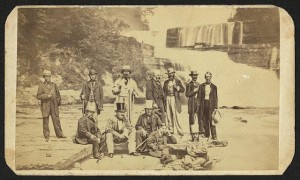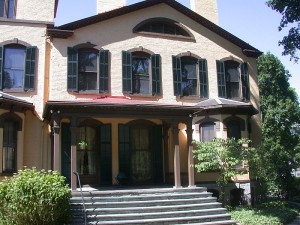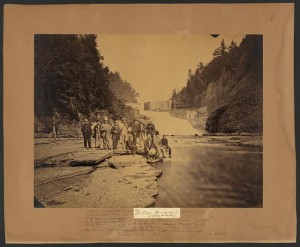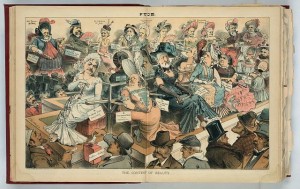From The New-York Times March 1, 1862:
Mr. Seward and the Next Presidency.
Mr. SEWARD having been informed of the existence of a club in Philadelphia, the purpose of which was to nominate him for the next Presidency, sent the following letter to its President:
WASHINGTON, Dec. 16, 1861.
DEAR SIR: I have received the letter which was addressed to me on the 8th instant by you, an officer of a political association recently organized in Philadelphia.
You will excuse me, my dear Sir, for what may seem unkind or ungrateful in this reply to that communication, which has given me some uneasiness, and which only fails to inflict severe pain upon me, because I do not regard the movement which it describes as one of very considerable magnitude.
The club, as you inform me, have adopted a resolution to exert themselves to secure my advancement to the Presidency of the United States, and this resolution is generously based upon a high appreciation of such public services as I have hitherto attempted to perform.
I avail myself of the good will of the club, thus flatteringly manifested, to say that I consider the proceeding as one altogether unwise, and tending to produce only public evil in a crisis when every possible path of danger ought to be carefully avoided. It is a partisan movement, and, worst of all, a partisan movement of a personal character.
If, when the present civil war was looming up before us, I had cherished an ambition to attain the high position you have indicated, I should have adopted one of two courses which lay open to me — namely, either to withdraw from the public service at home to a position of honor without great responsibility abroad, or to retire to private life, and avoiding the caprices of fortune, await the chances of public favor.
But I deliberately took another course. I renounced all ambition, and came into the Executive Government to aid in saving the Constitution and the integrity of my country, or to perish with them. It seemed to me, then, that I must necessarily renounce all expectation of future personal advantage, in order that the counsels that I might give to the President in such a crisis should not only be, but be recognized as being, disinterested, loyal and patriotic,
Acting on this principle, I shun no danger and shrink from no responsibility. So I neither look for, nor, if it should be offered to me, would I ever hereafter accept any reward.
The country is to be saved or lost by the highest efforts of public and private virtue before another Presidential election shall occur. If it shall be saved, as I believe it will, I do not fear that my zeal in that great achievement will be overlooked by the grateful generations to come after us. If, on the other hand, it shall be lost, he who shall study the causes of the great ruin shall not find among them any want of self-sacrifice on my part. I could never consent, if unanimously called upon, to be a President of a division of the Republic. I cheerfully give up my aspirations for rule in the whole Republic, as a contribution to the efforts necessary to maintain it in its integrity. I hardly need add that it results from these circumstances, that I not only ask, but peremptorily require, my friends, in whose behalf you have written to me, to drop my name, henceforth and forever, from among those to whom they look as possible candidates for National distinctions and preferments.
Very truly yours,
WILLIAM H. SEWARD.
And I thought presidential election cycles were long nowadays.
It seems that William H. Seward has changed his public demeanor since he thought he would be the Union’s savior early in 1861.
This letter reminded me of President Lyndon B. Johnson’s 1968 announcement in the midst of the Vietnam War that he would not seek re-election:
With America’s sons in the fields far away, with America’s future under challenge right here at home, with our hopes and the world’s hopes for peace in the balance every day, I do not believe that I should devote an hour or a day of my time to any personal partisan causes or to any duties other than the awesome duties of this office–the Presidency of your country.
Accordingly, I shall not seek, and I will not accept, the nomination of my party for another term as your President.
It is said that LJB’s pledge is an example of a Shermanesque statement after Civil War General William Tecumseh Sherman, who twice declined to be considered for president in the post-bellum United States. It sort of seems Secretary of State Seward had a Shermanesque statement before Sherman.
You can see a larger version of the first Trenton Falls image with numbers identifying the diplomats at Son of the South.
The photo of the Seward mansion is licensed by Creative Commons.




